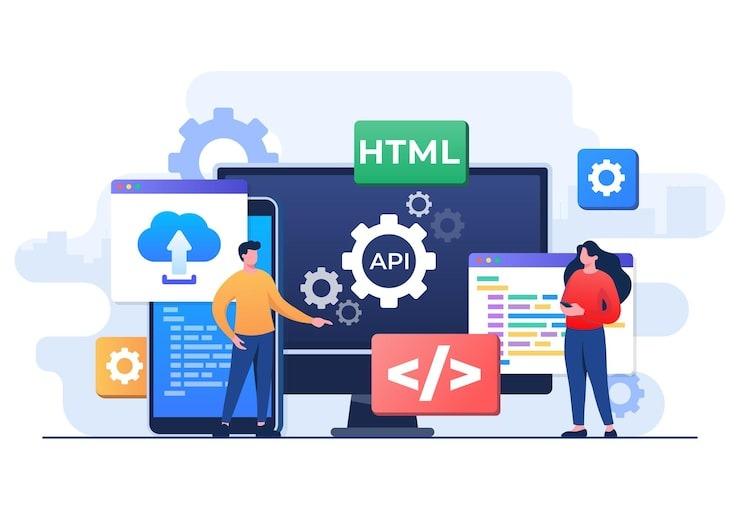Is Laravel Still the King of PHP Frameworks in 2025?

For more than a decade, Laravel has held the spotlight as the most popular Laravel PHP framework. With its elegant syntax, robust features, and active community, it has consistently been the go-to choice for developers and enterprises. But in 2025, with evolving technologies and growing competition, one key question remains: Is Laravel still the king of PHP frameworks?
A Quick Look at Laravel’s Journey
Laravel’s rise in popularity
Launched in 2011, Laravel quickly became the preferred option due to its ease of use, clear documentation, and developer-friendly approach.
Why developers chose it over other frameworks
-
Cleaner syntax compared to Symfony
-
Richer out-of-the-box features than CodeIgniter
-
Faster adoption curve than Yii
Laravel combined simplicity with powerful tools, giving developers a balanced framework that grew in relevance year after year.
Key Strengths That Keep Laravel Ahead
Elegant syntax and developer-friendly features
Developers appreciate Laravel’s intuitive code structure, which reduces boilerplate and improves productivity.
Strong ecosystem (Artisan, Blade, Eloquent)
-
Artisan CLI automates repetitive tasks
-
Blade template engine simplifies UI creation
-
Eloquent ORM streamlines database interactions
Built-in security and scalability
Laravel offers CSRF protection, robust authentication, and built-in caching mechanisms, making it suitable for projects ranging from startups to enterprise-grade applications. Many companies continue to trust a Laravel development company for secure and scalable solutions.
Laravel in 2025: What Has Changed?
-
Support for modern PHP versions – Laravel consistently adapts to the latest PHP standards, ensuring long-term reliability.
-
AI-powered development integrations – Tools like GPT-5 are helping automate code generation, debugging, and optimization within Laravel projects.
-
Growing package ecosystem and community – Thousands of packages now extend Laravel’s capabilities, from eCommerce to SaaS workflows.
Comparing Laravel With Other PHP Frameworks
Symfony vs Laravel
Symfony remains highly flexible but has a steeper learning curve. Laravel builds on Symfony components while offering a friendlier developer experience.
CodeIgniter and Yii in 2025
While lightweight frameworks like CodeIgniter and Yii still exist, they lack the robust ecosystem and community-driven growth of Laravel.
Why Laravel remains the preferred choice
Laravel’s balance of simplicity, scalability, and modern development trends cements its place as the most practical option for businesses in 2025.
Future of Laravel Development
Role of Laravel in SaaS and enterprise applications
Laravel continues to power SaaS platforms, fintech solutions, and enterprise portals thanks to its scalability and modular architecture.
Laravel + AI and automation trends
With the rise of AI in web development, Laravel projects increasingly integrate automation tools, predictive analytics, and personalized user experiences.
Community-driven innovation
A thriving open-source community ensures Laravel keeps pace with emerging technologies, making it future-proof. Businesses often hire dedicated Laravel developer teams to stay ahead with these innovations.
Should You Choose Laravel in 2025?
Best use cases for Laravel
-
SaaS applications
-
E-commerce platforms
-
Scalable enterprise solutions
-
Content-rich applications
When to pick Laravel over alternatives
Choose Laravel if you need:
-
Fast development without compromising quality
-
A framework supported by an extensive package ecosystem
-
Reliable security and scalability features
Partnering with a trusted Laravel development company ensures projects are built with best practices and optimized for long-term success.
Final Thoughts: Is Laravel Still the King?
The verdict: Yes, Laravel remains the king of PHP frameworks in 2025. Its blend of simplicity, flexibility, and cutting-edge innovation ensures it stays ahead of competitors. With continued adoption across startups and enterprises, the future of Laravel looks brighter than ever.
For developers and businesses, investing in Laravel today is not just about building applications—it’s about future-proofing digital strategies in a rapidly changing tech landscape.
- Art
- Causes
- Crafts
- Dance
- Drinks
- Film
- Fitness
- Food
- Spiele
- Gardening
- Health
- Startseite
- Literature
- Music
- Networking
- Andere
- Party
- Religion
- Shopping
- Sports
- Theater
- Wellness



